The global GPS tracking systems market, valued at $21.16 billion in 2022, is projected to skyrocket to $80.17 billion by 2032, reflecting its critical role in business operations. Whether you’re managing a fleet of trucks, a car rental service, or valuable cargo shipments, understanding GPS tracking software development is key to staying competitive. If you’ve ever wondered how to make your own GPS tracking software, this article will walk you through the basic steps, from defining must-have features to implementing a scalable and reliable solution that fits your needs.
Benefits of using vehicle GPS tracking
Vehicle GPS tracking has emerged as one of the key solutions that bring revolutionary change in logistics and transportation, as this field continues to develop in an unbridled way. This then made several companies invest in GPS tracking software development since the solution brought transformation from ensuring safety to improving efficiency in operation.
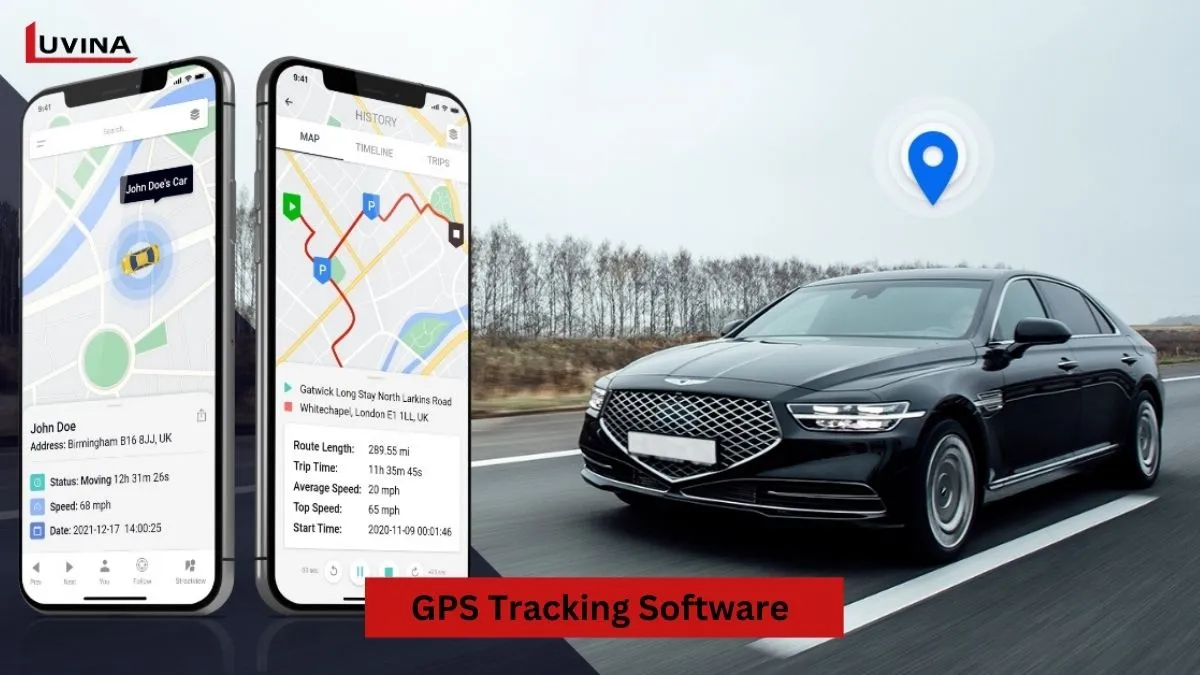
- Improved driving safety
With GPS tracking software, there is high integration in monitoring driving behavior. A list of practices identified by the technology includes speeding and harsh braking, along with appropriate alerts for safe driving. This helps the companies avoid any accidents to help protect the drivers from getting injured or killed, besides saving repair costs, insurance claims, and other litigations arising out of it.
- Lower fuel and operational costs
GPS tracking systems enable effective route planning to avoid detours and reduce idle time, which again translates into reduced fuel consumption and minimizes wear and tear on the vehicle, reducing maintenance costs. The business will have more economy in its operations and can achieve timely deliveries: a win-win situation for all.
- Boosted productivity
Real-time tracking of vehicles improves workflow efficiency. Managers can effectively distribute resources by rerouting vehicles if necessary and ensuring that all activities run smoothly. In GPS tracking software development, companies get insights that enable them to maximize productivity, simplifying daily operations.
- Enhanced customer experience
One prominent advantage of GPS tracking is that it provides real-time delivery updates. Customers need more transparency and dependability, and precise tracking empowers them with information about their shipments. This boosts trust, improves customer satisfaction, and fosters loyalty—key drivers of business growth.
- Faster theft recovery
Asset protection should be one’s top priority regardless of the sort of fleet business. A specific GPS solution tracks vehicles in real-time. It also accelerates the rapid recovery of theft assets. Integrating advanced track features during making GPS tracking software helps businesses protect an investment and attain peace of mind.
Features of vehicle GPS software
A balanced set of features in GPS tracking software design should be crafted, keeping in view the needs of your business. Though each industry may have its unique requirements, there is a core functionality that cannot be compromised for efficiency and reliability. In GPS tracking software development, these are the features to start with.
| No. | Features | Description |
| 1 | Real-time location tracking | Location tracking in real-time helps business operations track the movement of their fleets, unauthorized usage of vehicles, or theft of any vehicle. This feature becomes highly critical for enhanced operational oversight and assurance of the availability of assets. |
| 2 | Advanced route planning | Route optimization reduces the time taken to travel, fuel consumption, and overall operation costs. Businesses can dynamically compute the most efficient paths for deliveries or pickups by incorporating tools such as geofencing and multi-drop route planning. This saves not only time but also helps increase customer satisfaction due to timely service. |
| 3 | Mileage Tracking | It aids in the tracking of mileage for healthy fleets and better fueling. When a business logs the miles traveled, it gets to understand how to schedule maintenance so that it avoids downtime. Thus, data-driven decisions made by companies serve the purpose of cutting costs while keeping their vehicles in good condition. |
| 4 | Smart notifications and alerts | Events that this software will auto-send alerts on include speeding, unplanned stops, or unauthorized use. Notifications also help inform the customer of updates in delivery or delays, adding a layer of transparency and, by extension, building trust. Having this feature will eliminate the need for any type of manual communication in your project. |
| 5 | Driver hours monitoring | Fatigue is the most important cause of accidents in all fleet operations, which involve thousands of accidents every year. An hours-of-service tracker tracks driver activity to help managers reinforce rest periods and reduce driving while drowsy. For added safety, some solutions integrate video monitoring to ensure compliance and provide actionable insights. |
| 6 | Robust security | Cybersecurity is non-negotiable in today’s digital landscape. An anti-hacking module protects your GPS software from threats such as data breaches and malware attacks. This guarantees the integrity of your system and protects sensitive information from unauthorized access. |
If you look at how to make a GPS tracker app, focusing on these core elements will help you create a solution that’s both scalable and secure, hence assuring the long-term success of your operations.
How to make GPS tracking software?
The development of GPS tracking software covers an extensive process that concerns planning, includes the right choice of technology, and is performed. Understanding how to make GPS tracking software requires pointing out several phases of development, starting with market research up to the very deployment and maintenance.
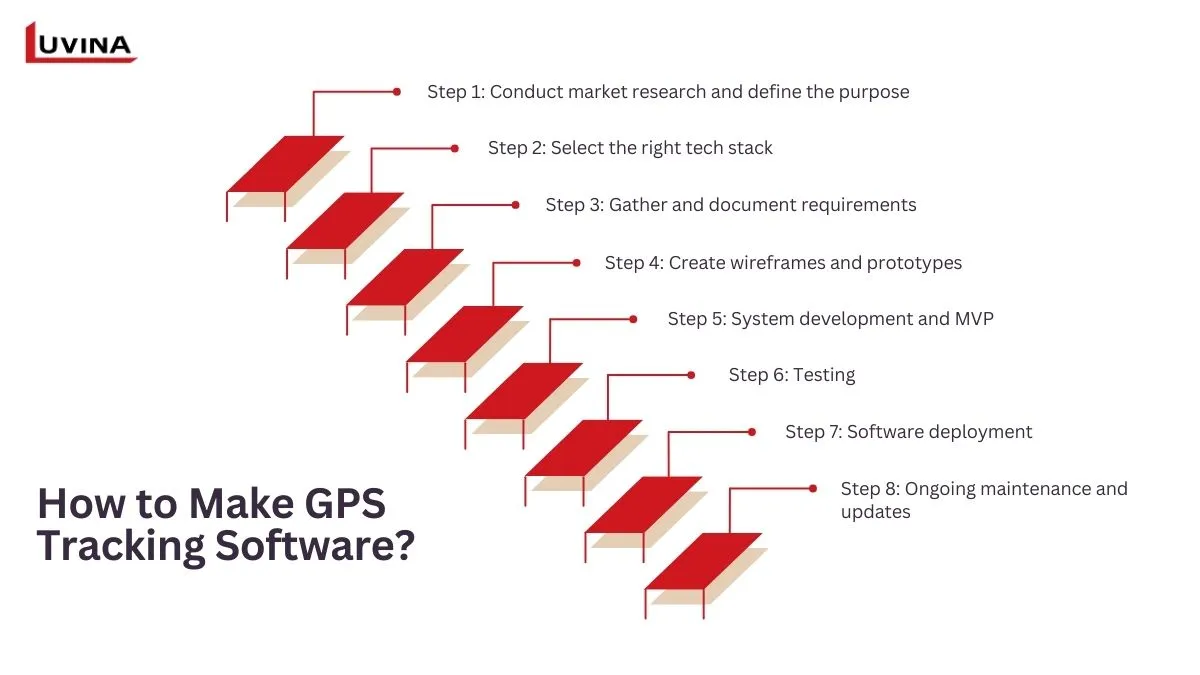
Step 1: Conduct market research and define the purpose
Before developing GPS tracking software, you need to conduct serious market research. You have to analyze the applications of competitors, the technologies applied, and the positioning of those applications in the market. This will help you outline the unique value proposition of your application.
Ask yourself: What problem will your GPS tracker solve? Will it address specific user pain points? A successful GPS tracking app must be both innovative and functional. Understanding how to make GPS tracking software that meets user needs is critical at this stage.
Step 2: Select the right tech stack
One of the very first questions when determining how to make a GPS tracker app would be choosing between Android and iOS. That is all dependent on the audience and the nature of your app. For instance, applications developed on Android generally tend to have a bigger audience, while in-app purchases work much better for iOS users.
Also, consider the long-term costs involved and timelines. Because of the wide compatibility of different models and OS versions, the development of GPS tracking software for Android may take more time and involve more resources. In contrast, the development process for iOS applications usually goes much smoother.
Step 3: Gather and document requirements
During this phase, the business analyst should pen down the specific requirements for your GPS tracking application. These can be:
- – Collection of data from a mobile operator or any other Wi-Fi network
- – Algorithms needed to correctly track
- – Security features to protect users’ data
- – Integration with third-party services
This will ensure that these requirements align with your goals, setting the stage for the whole GPS tracking software development process. When all the requirements are noted down, it is time to get approval from the stakeholders.

Step 4: Create wireframes and prototypes
The important steps in the development of any GPS tracking software are wireframing and prototyping. During this stage, you visualize the user interface of your application and resolve issues that may arise well before the actual development starts.
You can make a wireframe that will help in making the structure intuitive and user-friendly, especially for the feature of real-time tracking. It will also help in prototyping how to make the GPS tracker app more efficient and effective by focusing on key functionalities.
Step 5: System development and MVP
At this point, the coding of your app starts to be done. A Minimal Functional Prototype (MFP) should be used; that is, a small version of your app that has core functionalities like location tracking and alerts.
When the MFP has been tested and refined, you proceed with the creation of the Minimum Viable Product, the version including just those necessary features, like maps and basic tracking, which will let you collect feedback from users. It will guide you to make decisions on further GPS tracking software development.
Step 6: Testing
Thorough testing is vital when developing GPS tracking software. This is because of the need to check all aspects, especially where the accuracy of locating the position or how responsive the application is when operating under different situations.
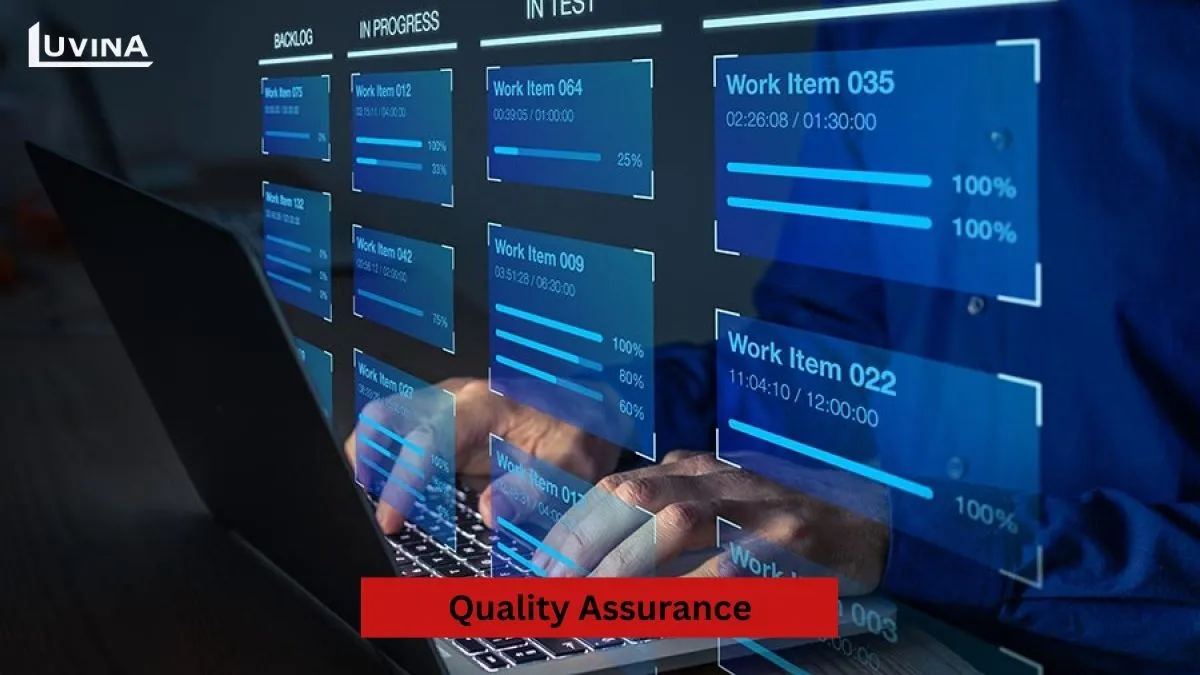
QA finds bugs that could have been overlooked during the development process; this way, they guarantee that your application runs smoothly and securely. At the end of testing, your application will be ready to launch.
Step 7: Software deployment
Once the software has passed all quality checks, it’s time to deploy. In GPS tracking software development companies, this stage consists of system integration with devices that your target audience uses, say, fleet operators or drivers.
This step involves ensuring all components of the software work smoothly together, real-time tracking functions are fully operational.
Step 8: Ongoing maintenance and updates
Maintenance post-launch is one of the key ingredients for the success of your GPS tracking software. Monitor the performance of your solution constantly and update it according to users’ feedback to keep improving its functionality, security, and usability.
Scalability is another prime necessity—you need your app to grow along with increases in the number of users or devices. Frequent updates will keep your app ahead in the market.
Tech trends shaping GPS tracking app
The landscape of GPS-tracking apps is rapidly evolving, with several key trends shaping the future of GPS-tracking software development. These trends not only enhance the accuracy and functionality of GPS-tracking apps but also improve the overall user experience and operational efficiency.
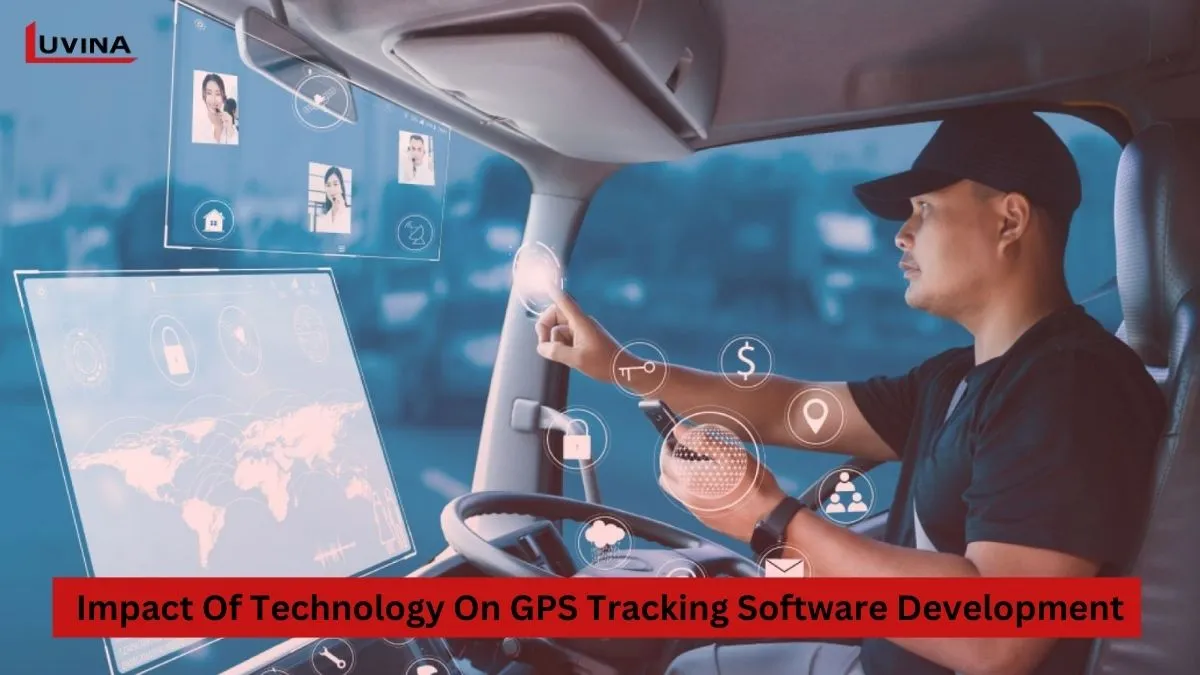
1. Enhanced driver safety
While classical solutions for GPS tracking are expanding their offerings towards ADAS and collision avoidance technologies, these go way beyond location tracking to real-time coaching, vehicle maintenance alerts, and automatic accident assistance. AI and computer vision power new solutions for driving behavior monitoring and improvement, making the roads safer both for drivers and vehicles.
2. Predictive maintenance and advanced analytics
AI and machine learning now power fleet management, from predictive maintenance to advanced analytics. These tools analyze large volumes of data to predict when a vehicle may require maintenance to avoid sudden breakdowns and enhance the overall performance of the fleet. With predictive insights, fleet operators can decrease downtime, reduce maintenance costs, and improve the dependability of their fleets.
3. Real-time tracking with 5G connectivity
5G technology is going to be a game-changer for GPS tracking applications, promising faster and more reliable connections. The movement of GPS tracking software development to 5G has made real-time fleet tracking more accurate, hence enabling the fleet manager to monitor the vehicles instantaneously. Low latency and higher bandwidth availed by 5G enable better real-time fleet management, including value-added features such as live traffic monitoring and route optimization.
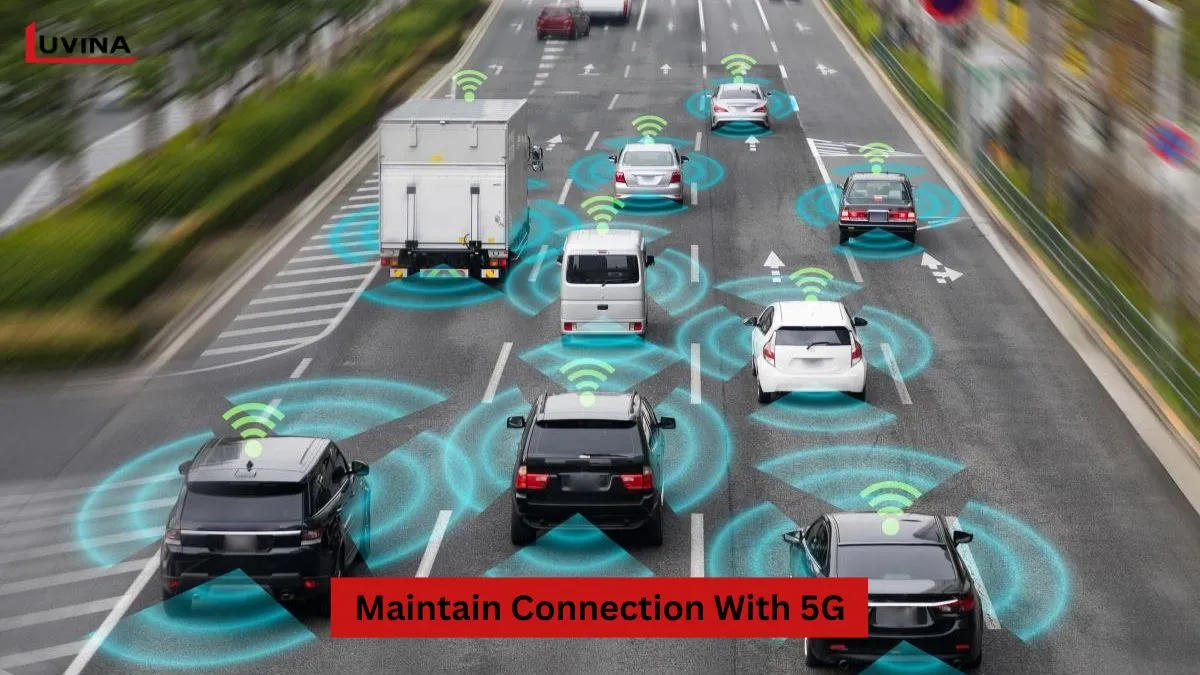
4. Sustainable solutions
Many businesses are focusing their attention on sustainability these days, and this happens to extend even into GPS tracking apps. Car mileage tracking and adding electric vehicles to the fleet are increasingly becoming standard inclusions. GPS tracking software development may have features that help reduce carbon footprints, thus making business operations greener. Besides this, GPS systems provide optimal routes and ways of lowering fuel consumption, thus making the management of the fleet environment-friendly.
5. Blockchain for data integrity
It has become really helpful to make data in GPS tracking applications secure and transparent through blockchain technology. The blockchain would provide a basis upon which the histories, maintenance logs of vehicles, or transaction data can’t be altered once entered into the blockchain using GPS tracking software. It allows tamper-proof management of critical information regarding tracking with very minimal risks related to fraud and inaccuracy.
6. Integration of IoT with GPS tracking
For those interested in how to make your own GPS tracking software, the integration of IoT into the system can significantly enhance the app’s capabilities. IoT is revolutionizing GPS tracking by making vehicles communicate with several connected devices. IoT-enabled GPS tracking systems share data in real time and draw valuable insights on fleet health, driving behavior, and vehicle performance.
It will also predict, for example, traffic congestion based on current conditions, fuel consumption, and any alerts for needed maintenance. For IoT features of this nature to function, energy-efficient hardware must be part of the tracking system with effective, real-time data transfer.
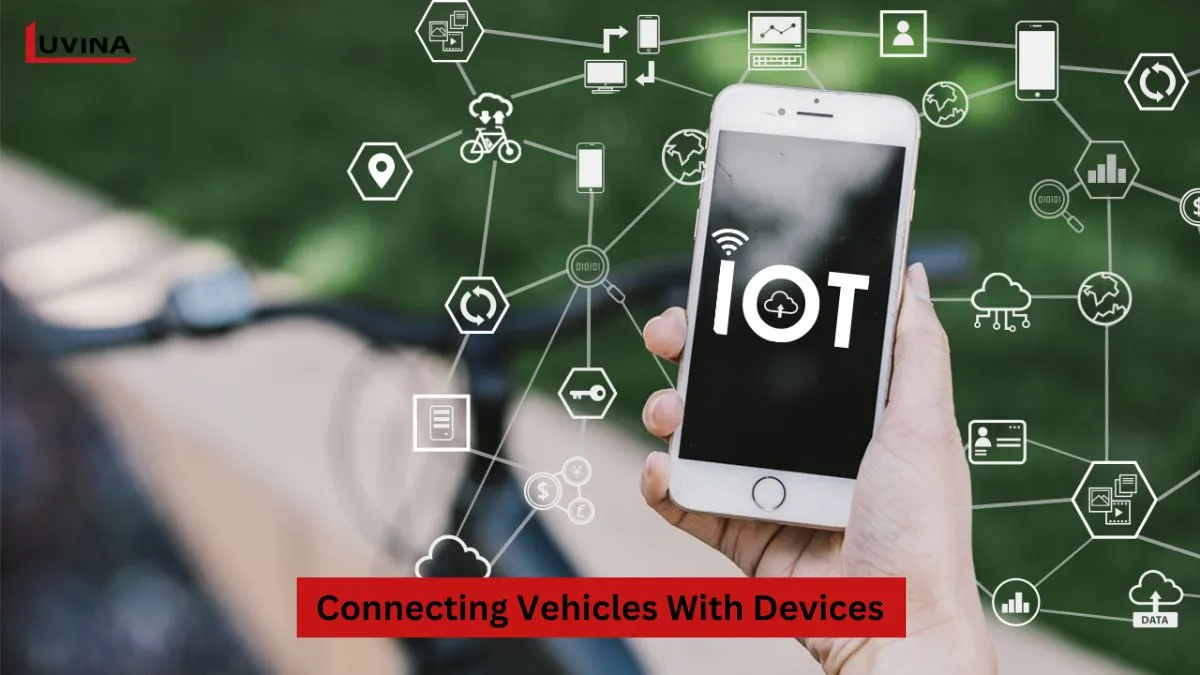
Luvina – GPS tracking software development company
Therefore, designing a GPS tracking application can turn into the most daunting work of balancing scalability, functionality, and budget but should not be so if chosen correctly. From designing, developing, testing, and deploying to finally publishing, Luvina- one of the trusted IT service providers—leads from the front by steering through the pitfalls of digital transformation regarding efficient, scalable, and feature-rich solutions on GPS tracking for more than 20 continuous years.
Luvina is aware of specific logistics and transportation enterprise needs, which include GPS tracking software development, allowing the fleet to optimize the process, monitoring vehicles. and enhancing scheduling. Our team has developed several types of software applications with a focus on cutting costs, accelerating the pace of delivery, and delighting customers.
Our expertise includes:
- – Vehicle monitoring & scheduling systems: Ensure real-time tracking of vehicles for route optimization and automation of scheduling to facilitate smooth operations.
- – Fleet management systems: For easier management of several vehicles on intuitive dashboards, performance insights, and better coordination of fleets.
- – Tracking app for passengers: An app for booking rides and tracking the vehicle’s location.
Why Choose Luvina?
- – Scalability & flexibility: With a pool of over 750 IT professionals, we can quickly scale up your development team to meet your project needs and deadlines, ensuring that your GPS tracking app evolves with your business requirements.
- – Highest data security: International standards of protection are respected in our practice; hence, intellectual property and sensitive information will be well treated in the course of development.
- – High-quality service: Luvina confirms the quality by the certification of ISO 9001 and CMMI level 3, proving our attitude of continuous improvement toward the best quality of services.
As you are looking for a professional GPS tracking software development partner, Luvina is happy to provide experience and support that would let you effectively build, deploy, and scale your GPS tracking application. Reach out to our consultants today to talk more about your goals.
Conclusion
The bottom line is that a reliable GPS tracking solution is what every business needs to improve its efficiency and develop better control over its fleet and workforce. Be it a small business, a trucking company, or even a manufacturer, a GPS tracking system helps you track the location of your vehicle and employee with ease. If you are considering GPS tracking software development, we can offer you expert guidance to help you take the next step in building a reliable GPS tracker tailored to your needs. Let us help you turn your tracking goals into a seamless, efficient reality.









Read More From Us?
Sign up for our newsletter
Read More From Us?
Sign up for our newsletter